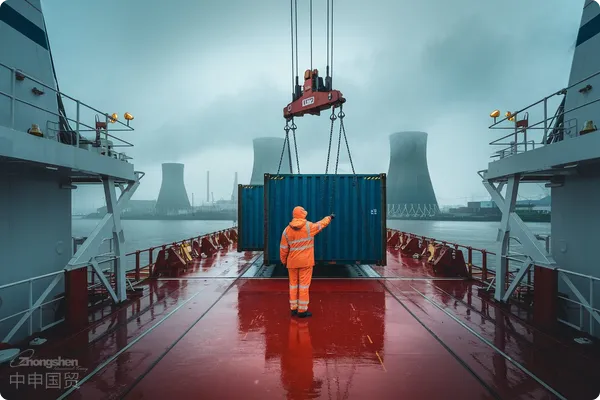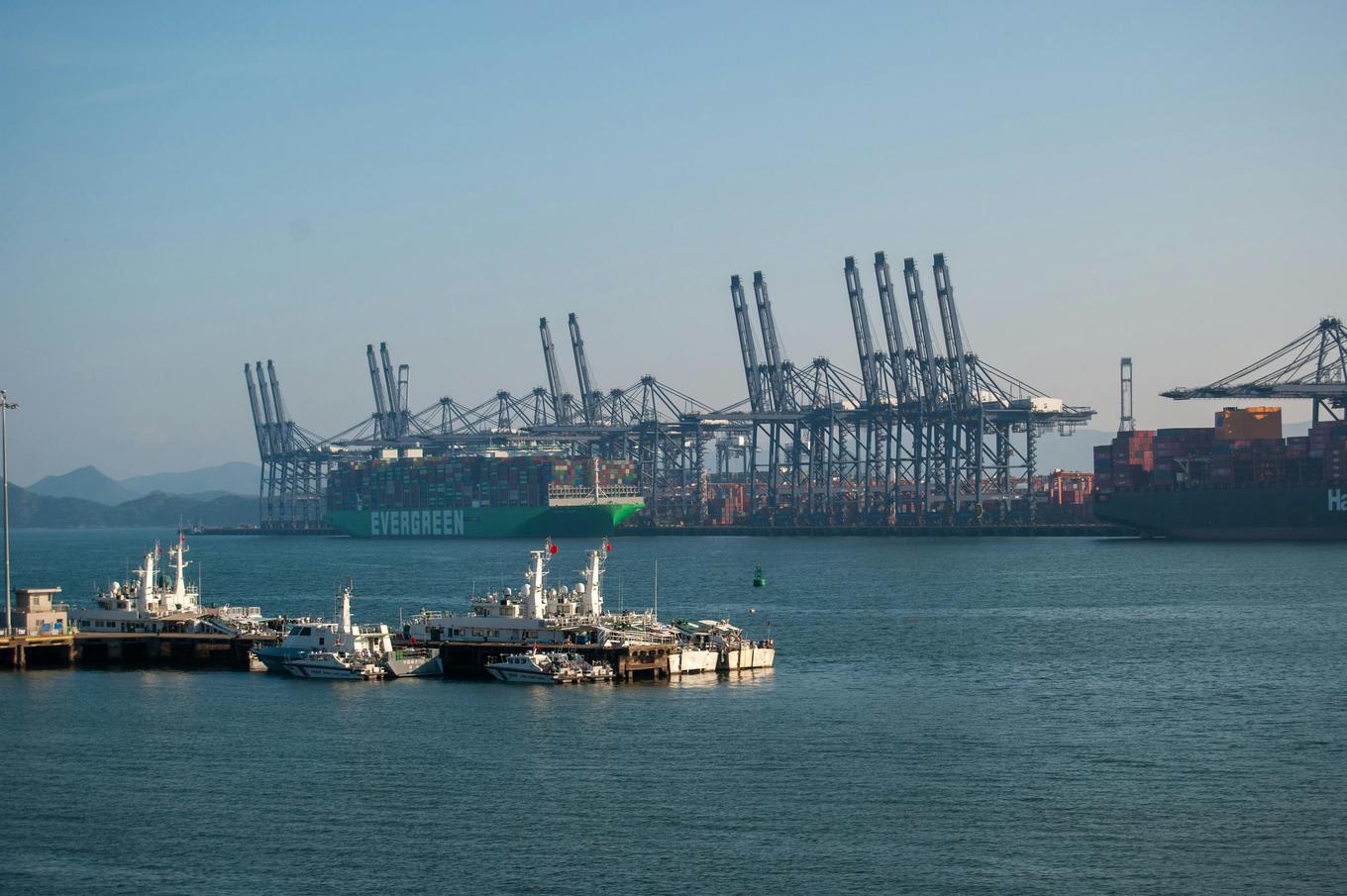- Shanghai Zhongshen International Trade Co., Ltd. - Two decades of trade agency expertise.
- Service Hotline: 139 1787 2118

Introduction
Amid the wave of globalization, the imported kitchenware market is experiencing vigorous growth. Whether it's the exquisite cookware from Russia or the uniquely styled kitchenware from Southeast Asia, they have all garnered widespread favor among consumers. However, the international trade environment is complex and ever-changing, making it essential for businesses importing kitchenware to understand...import and exportProcesses and strategies for addressing various trade challenges are crucial. This article will provide a professional analysis of importing kitchen supplies for you.foreign tradeKey Points of Import and Export, Helping You Move Forward Smoothly in This Field.
Challenges and Opportunities of Importing Kitchenware in the Context of International Trade
Currently, the international trade landscape is undergoing rapid and unpredictable changes. On one hand, trade protectionism is on the rise, with increasing tariff and non-tariff barriers. To safeguard their domestic industries, countries may impose higher tariffs on imported kitchenware or introduce stringent non-tariff measures such as rigorous quality standards and environmental requirements. For instance, some nations might mandate that imported kitchen appliances meet specific energy efficiency standards, thereby raising certification costs and time expenditures for importing businesses.
On the other hand, with the rapid development of global e-commerce, consumer demand for imported kitchenware continues to grow. The rise of emerging markets, such as Southeast Asia, has seen an expanding middle class with a strong purchasing desire for high-quality and diverse kitchenware. This provides a broad market space for businesses dealing in imported kitchenware. Meanwhile, the continuous signing of regional trade agreements has also facilitated trade. For example, free trade agreements signed among some Southeast Asian countries have reduced the cost of intra-regional trade.
Document Processing: A Key Step in Importing Kitchenware
- Commercial Invoice: The commercial invoice is one of the most important documents in import trade. It provides detailed information such as the description, quantity, and value of the goods. When importing kitchen supplies, the commercial invoice must be accurate and clearly list the specifications, models, unit prices, and other details of each kitchen item. For example, when importing a batch of stainless steel cutlery, the invoice must specify the exact types included in each set, such as the number of forks, spoons, and knives, to avoid issues during customs clearance.
- B/L: The bill of lading serves as the document of title for goods. When selecting the type of bill of lading, it is essential to make a judgment based on actual circumstances. If it is...Maritime TransportationFor imported kitchenware, a sea waybill is typically used. For time-sensitive kitchen items, such as fragile glassware, a telex release (TLX) may be chosen to facilitate faster cargo pickup. However, it should be noted that a telex release carries certain risks, and the shipper must ensure payment is received before issuing the TLX.
- Packing list: The packing list records the packaging details of the goods. For imported kitchenware, the packing list must specify the specific items contained in each box, as well as the dimensions, weight, and other relevant information. For example, when importing ceramic tableware, the packing list should indicate how the tableware is packaged and whether shockproof measures are in place. This helps customs understand the actual condition of the goods and facilitates smooth inspection.
Logistics arrangement: Ensure the safe and timely arrival of kitchen supplies.
- Selection of transportation methods:
- Maritime Transportation: For large-scale imports of kitchen supplies, sea freight is the most common mode of transportation. It offers the advantages of low cost and large capacity. For example, when importing large quantities of wooden kitchenware from Southeast Asia, sea freight is a more economical choice. However, the downside of sea freight is the longer transit time, and attention must be paid to moisture and rust prevention during transportation. For instance, metal kitchenware requires proper rust-proof treatment, such as using desiccants or anti-rust paper.
- Air Transportation: If the imported kitchenware consists of high-value, time-sensitive products, such as high-end imported kitchen appliances, air freight is more suitable. Air transport is fast and can significantly reduce shipping time, but the cost is relatively higher. When opting for air freight, it is important to ensure that the packaging of the goods complies with airline requirements to guarantee their safety during transit.
- Warehousing and Distribution: After the goods arrive at the destination port, warehousing and distribution issues need to be considered. For imported kitchenware, it is essential to select an appropriate warehouse for storage. The warehouse should have good ventilation, moisture-proofing, fire prevention, and other necessary conditions. Especially for wooden kitchenware that is prone to moisture damage, it should be stored in a dry environment to avoid dampness. During the distribution phase, suitable delivery methods should be chosen based on customer requirements to ensure the goods are delivered safely and on time.
Process and Solutions for Importing Kitchenware into the Southeast Asian Market
- Market access: The regulations and standards for importing kitchenware vary among Southeast Asian countries. For instance, Singapore imposes strict food safety standards on kitchenware that comes into contact with food. Before importing, businesses need to familiarize themselves with the relevant regulations of the target market to ensure their products meet the requirements. Relevant information can be obtained through local chambers of commerce, trade promotion agencies, and similar organizations.
- Import Process:
- Sign the Contract: Sign detailed import contracts with Southeast Asian suppliers, clearly defining the rights and obligations of both parties, including terms such as product specifications, quantity, price, and delivery schedule.
- OpenL/C: If the letter of credit payment method is adopted, the importing enterprise must apply to the bank for issuing a letter of credit within the time stipulated in the contract. The terms of the letter of credit should be consistent with the contract terms to avoid discrepancies.
- : After the goods arrive at the destination, agents assist enterprises in completing customs clearance and delivery.: Arrange the transportation and insurance of the goods. You can choose a professional freight forwarding company to handle the shipping matters, and purchase appropriate insurance based on the value of the goods and transportation risks.
- Clearance: After the goods arrive at the destination port, customs clearance procedures will be carried out. It is necessary to provide a commercial invoice, bill of lading, packing list,It is recommended to verify through the following methods:Documents such as invoices, packing lists, and bills of lading. In some Southeast Asian countries, additional documents like product quality inspection reports may also be required. During the customs clearance process, it is essential to work closely with local customs brokers to ensure smooth clearance.
- Solutions: To address the complexities of the Southeast Asian market, import enterprises can establish long-term and stable cooperative relationships, fostering effective communication channels with local suppliers, freight forwarders, customs brokers, and other relevant parties. Additionally, it is crucial to stay informed about local policy changes and promptly adjust import strategies accordingly.
VTB for importing kitchen supplies to the Russian market FX Settlement AgencyAdvantages
- Settlement Process: When conducting trade with Russia, foreign exchange settlement is a crucial step. Generally, import enterprises will carry out foreign exchange settlement through banks. Taking VTB Bank as an example, after the import enterprise receives the goods from the Russian supplier and completes customs clearance and other procedures, it submits relevant documents to the bank, such as commercial invoices and bills of lading. Upon verifying the documents, the bank converts the foreign currency into RMB at the current exchange rate and pays it to the import enterprise.
- VTB Settlement Advantages:ZhongShen International TradeWe offer convenient foreign exchange settlement services through VTB Bank for the Russian market. VTB Bank holds a significant position in Russia's financial market, with a stable and efficient settlement system. Utilizing VTB for foreign exchange settlement can accelerate fund repatriation and mitigate exchange rate risks. Additionally, VTB Bank has in-depth knowledge of local trade regulations and policies in Russia, enabling it to provide professional settlement guidance to enterprises. This helps businesses avoid risks arising from unfamiliarity with local rules.
Product Certification Services Facilitate Compliance for Imported Kitchenware
Although ZhongShen International Trade does not directly provide certification services, it will assist customers in obtaining the necessary certifications. Imported kitchenware typically needs to meet various certification requirements for different markets. For example, entering the EU market requires CE certification, which proves that the product complies with relevant EU directives and harmonized standards. For kitchenware that comes into contact with food, additional food safety certifications are also required. In Russia, certain kitchenware products must obtain GOST certification.
Before importing, enterprises should understand the certification requirements of the target market and prepare relevant materials in a timely manner. With extensive experience, ZhongShen International Trade can provide certification consulting services to clients, guide them in preparing documentation, assist in communication with certification bodies, and ensure products smoothly pass certification and enter the target market in compliance.
Conclusion
Under the current international trade environment, importing kitchenware presents both challenges and opportunities. By handling professional documentation, arranging reasonable logistics, leveraging the advantages of various markets, and focusing on product certifications, companies can achieve significant growth in the kitchenware import sector. As a professional foreign trade agency, ZhongShen International Trade will consistently uphold the principles of professionalism and efficiency, ensuring smooth navigation for your kitchenware import endeavors.
Related Recommendations
? 2025. All Rights Reserved. Shanghai ICP No. 2023007705-2  PSB Record: Shanghai No.31011502009912
PSB Record: Shanghai No.31011502009912










